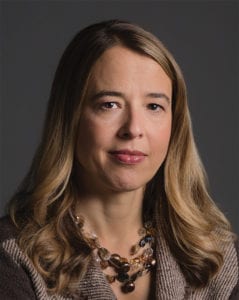One of the most dangerous animals in the world is one that often goes unnoticed—the mosquito.
About half of the world population is at risk of contracting malaria, reports the World Health Organization. Of the 219 million people affected in 2010, there were 660,000 deaths, 90 percent of which occurred in Africa, where malaria is the leading cause of death. Faso Soap—an organization from Burkina Faso, a small landlocked country in Africa, that is addressing the problem through an effective, easily adoptable mosquito-repelling soap—won this year's Global Social Venture Competition (GSVC) $25,000 Grand Prize.
Faso Soap is the brainchild of Moctar Dembélé and Gérard Niyondiko, two students from 2iE Foundation, an international higher-education and training institute. Using natural ingredients found locally in Burkina Faso, the team can produce its soap inexpensively while creating local jobs and reducing the medical expenses and loss of income associated with malaria.
“Malaria is a huge problem not only in our country, but in all of Africa,” Dembélé said in the team’s project presentation. “We wanted a simple solution. Everyone uses soap in Africa, even in the poorest communities. Faso Soap doesn’t require any change of behavior.”
The win marks the first time a student team from Africa has won the GSVC Grand Prize. The team—which also won the Blum Center for Developing Economies $1,500 People’s Choice Award—was among the nearly 650 competitors from 37 countries that entered the GSVC this year, including 19 Haas-affiliated teams, nine of which were chosen to compete in the U.S.-Western Regional Finals.
A total of 18 finalists gathered at Haas April 11 and 12 to compete for $50,000 in prizes at the Global Finals. The GSVC, started in 1999 by Berkeley MBA students, helps aspiring entrepreneurs create businesses that have a positive social impact. The competition is hosted by the Lester Center for Entreperneurship with the support about 25 MBA students. The first prize is sponsored by the Dow Chemical Co.
The other 2013 winners were:
- Carbon Roots International (Second Place, $15,000), a Haiti-based team that will produce “green charcoal” and a carbon-negative soil fertilizer from agricultural waste—products that will reduce deforestation via a low-cost alternative (non-wood) cooking fuel and help small-plot farmers achieve higher crop yields.
- PulpWorks Inc. (Third Place, $7,500), a U.S. team that addresses the worldwide plastics pollution problem via a biodegradable, compostable, pulp-and-paper alternative to toxic plastic packaging.
- Jorsey Ashbel Farms (Center for Responsible Business Quick Pitch Award, $1,000), a Nigerian team that produces innovative livestock feed, low-cost protein foods and has developed an effective distribution system to combat the problem of protein-energy malnutrition, which affects millions of disadvantaged children and women.
More information about the winning teams can be found on the GSVC Facebook page and will soon be posted at gsvc.org.


 Patatoukas’ study, “Detecting News in Aggregate Accounting Earnings: Implications for Stock Market Valuation” is published in The Review of Accounting Studies (March 2013).
Patatoukas’ study, “Detecting News in Aggregate Accounting Earnings: Implications for Stock Market Valuation” is published in The Review of Accounting Studies (March 2013). “Our data revealed that many successful entrepreneurs exhibited aggressive behavior and got in trouble as teenagers. This is the person who wasn’t afraid to break the rules, take things by force, or even be involved in minor drugs,” says Levine, the Willis H. Booth Chair in Banking and Finance.
“Our data revealed that many successful entrepreneurs exhibited aggressive behavior and got in trouble as teenagers. This is the person who wasn’t afraid to break the rules, take things by force, or even be involved in minor drugs,” says Levine, the Willis H. Booth Chair in Banking and Finance. Previous research has found that analysts who rounded tended to work for small brokerage firms, to have relatively poor prior records of accuracy, to update their forecasts only infrequently, to have long forecast horizons, and to follow an above-average number of firms from multiple industries. Dechow’s research confirms these findings and corroborates the counterintuitive earlier discovery that experienced analysts tend to round more often than less seasoned colleagues, perhaps “because they are compensated less for accuracy as their tenure with the firm increases.”
Previous research has found that analysts who rounded tended to work for small brokerage firms, to have relatively poor prior records of accuracy, to update their forecasts only infrequently, to have long forecast horizons, and to follow an above-average number of firms from multiple industries. Dechow’s research confirms these findings and corroborates the counterintuitive earlier discovery that experienced analysts tend to round more often than less seasoned colleagues, perhaps “because they are compensated less for accuracy as their tenure with the firm increases.” David Teece
David Teece Nicolae Gârleanu
Nicolae Gârleanu Adair Morse
Adair Morse
 Chen, who won in the small business category
Chen, who won in the small business category Kurtzig, who was chosen as the rising star winner,
Kurtzig, who was chosen as the rising star winner,